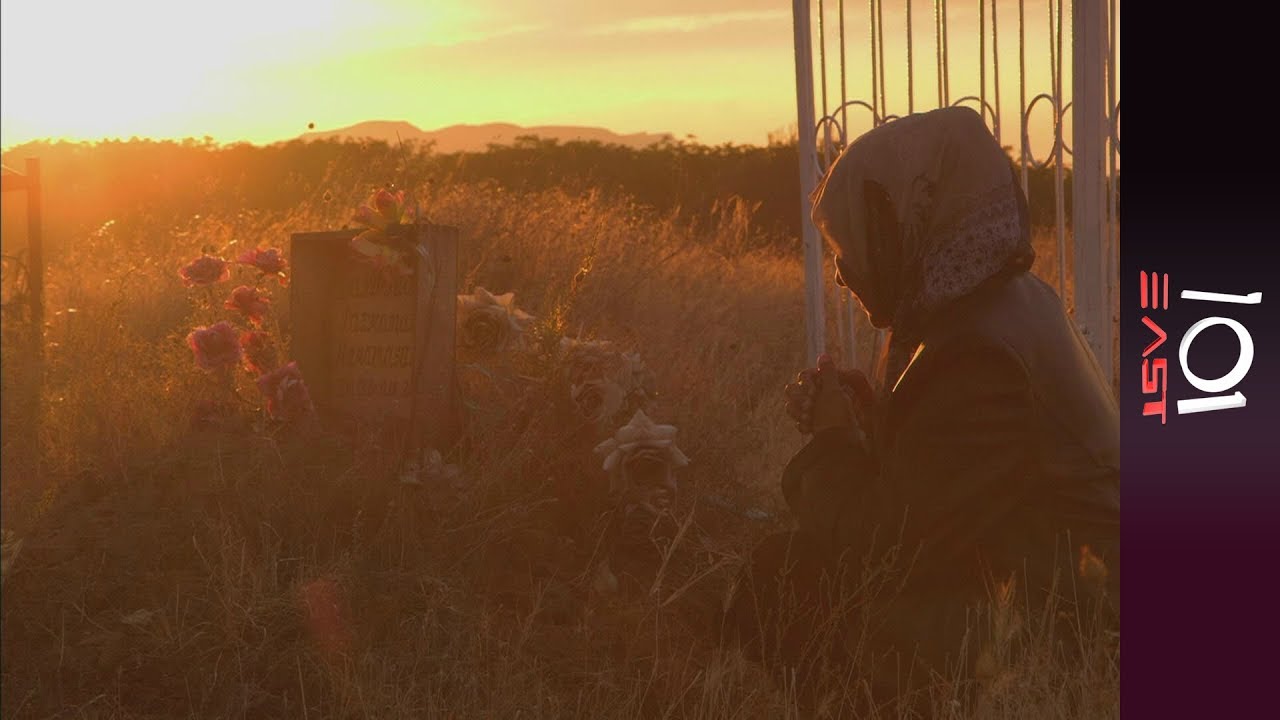🇰🇬 Kyrgyzstan | Unhealed Wounds of Osh | 101 East
On June 11, 2010, conflict erupted between the Uzbek and Kyrgyz communities of southern Kyrgyzstan, with most of the violence concentrated in Osh and the neighbouring town of Jalalabad.
The ousting of Kurmanbek Bakiyev, the country’s then-president, earlier that year had led to violent protests and a power struggle. Long-standing inter-ethnic tensions were exploited, and under lawless conditions, mobs of ethnic Kyrgyz were able to take part in organised assaults on Uzbek neighbourhoods.
Hundreds of people were killed and thousands wounded, homes and businesses were destroyed, and hundreds of thousands of people were displaced.
Al Jazeera’s Robin Forestier-Walker was one of the first journalists inside Osh in June 2010 when the violence started.
When he returns to the city three years later, he finds many still living in fear of the authorities. Their accounts allege the involvement of the military in the attacks on the Uzbek community which resulted in summary lynchings and the fleeing of tens of thousands of refugees across the border into neighbouring Uzbekistan.
Many are still in pursuit of justice for the crimes from three years ago. But Human Rights Watch questions the standards of fair trials relating to the 2010 violence. A vast majority of cases have ended with the conviction of Uzbeks and statistics show that few Kyrgyz have been jailed despite the fact that Uzbeks disproportionately bore the brunt of the violence.
But all sides share their struggles in seeking justice through a system that favours the powerful. Many say the courts only deliver verdicts based on forceful pressure or bribes, forcing families to take matters into their own hands.
Today, peace has returned to the streets of Osh but deep seated grievances are a long way from being resolved. There are approximately 750,000 Uzbeks living in Kyrgyzstan, but few of them hold positions in the government, police or military. Since 2010, media outlets stopped broadcasting in their language. Only recently has one radio station, Intymak Radio, begun broadcasting some programmes in Uzbek again. Uzbek language schools are on the decline, with national tests now permitted only in Kyrgyz and Russian.
Kyrgyz nationalism is on the rise, visible through a proliferation in monuments to Kyrgyz heroes. Meanwhile, minority ethnic groups question its inclusivity. Triumphant nationalists include Melis Myrzakmatov, the populist Kyrgyz mayor of Osh, who claims he is bringing reconciliation to the city. He wants to dismantle segregated Uzbek neighbourhoods known as mahallas to make way for shared apartment blocks.
Under these circumstances, reconciliation seems a long way off and the two communities continue to live in an uneasy peace. Without reconciliation and justice, there is a widespread fear that history will repeat itself yet again.
More from 101 East on:
YouTube – http://aje.io/101eastYouTube
Facebook – http://facebook.com/101east
Twitter – http://twitter.com/aj101east
Instagram – http://instagram.com/aj101east
Website – http://aljazeera.com/101east



![Private: [ID: fBgycpxLWOA] Youtube Automatic](https://nezha.pro/wp-content/uploads/2023/09/private-id-fbgycpxlwoa-youtube-a-236x133.jpg)
![Private: [ID: 5pjnizqXy-g] Youtube Automatic](https://nezha.pro/wp-content/uploads/2023/08/private-id-5pjnizqxy-g-youtube-a-236x133.jpg)
![私密內容: [ID: EKY1OChHTa0] Youtube Automatic](https://nezha.pro/wp-content/uploads/2023/08/id-eky1ochhta0-youtube-automati-236x133.jpg)
![私密內容: [ID: 4UFe4tRMZ0Y] Youtube Automatic](https://nezha.pro/wp-content/uploads/2023/08/id-4ufe4trmz0y-youtube-automati-236x133.jpg)
![私密內容: [ID: pkl8HVDagHo] Youtube Automatic](https://nezha.pro/wp-content/uploads/2023/08/id-pkl8hvdagho-youtube-automati-236x133.jpg)
![私密內容: [ID: 5daehHaqpeo] Youtube Automatic](https://nezha.pro/wp-content/uploads/2023/07/id-5daehhaqpeo-youtube-automati-236x133.jpg)
![私密內容: [ID: XxMUOi61Irs] Youtube Automatic](https://nezha.pro/wp-content/uploads/2023/07/id-xxmuoi61irs-youtube-automati-236x133.jpg)
![Private: [ID: uY5SX8c8kWI] Youtube Automatic](https://nezha.pro/wp-content/uploads/2023/10/private-id-uy5sx8c8kwi-youtube-a-236x133.jpg)
![私密內容: [ID: tobguo86Ju4] Youtube Automatic](https://nezha.pro/wp-content/uploads/2023/07/id-tobguo86ju4-youtube-automati-236x133.jpg)
![私密內容: [ID: 00P3TEP9Tx0] Youtube Automatic](https://nezha.pro/wp-content/uploads/2023/06/id-00p3tep9tx0-youtube-automati-236x133.jpg)